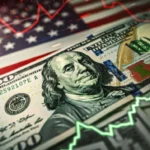AbbVie Inc., one of the major pharmaceutical companies in the United States, continues to promote itself as an attractive long-term investment. With a robust product portfolio, growing dividend, and a pipeline of potential medications, AbbVie is gaining traction among knowledgeable investors in 2025.
Strong Financials and Expanding Portfolio
AbbVie’s strong earnings growth has continued despite the loss of exclusivity on its blockbuster medicine Humira. The company’s newer assets, including Skyrizi and Rinvoq, are rapidly acquiring market share in the immunology area, and are likely to outperform Humira’s peak revenue in the future years. In its recent Q1 2025 earnings call, AbbVie reaffirmed its commitment to long-term growth, reporting over $13 billion in quarterly revenue and a solid full-year estimate.
Strategic Acquisitions and Pipeline Momentum
AbbVie’s strategic acquisition of ImmunoGen, which adds cancer potential through antibody drug conjugates, is a crucial reason in its appeal to long-term investors. The company’s oncology program, led by Venclexta and Epkinly, is making progress in treating hematologic tumors. Morningstar analysts note AbbVie’s R&D depth and patent diversification as key characteristics that mitigate revenue risk.
Dividend Stability with Growth Potential
AbbVie is also a Dividend Aristocrat, having grown dividends for 52 straight years (including the Abbott heritage). With a current yield of around 4 percent, it provides investors with a combination of income and capital appreciation.
For US investors looking for long-term stability and upside potential, AbbVie’s combination of financial strength, scientific innovation, and shareholder-friendly policies elevates it to the status of a cornerstone in any future-facing portfolio.
Also read: Gold and Silver Prices in Flux as Fed Cues and Tariff Tensions Stir Markets







